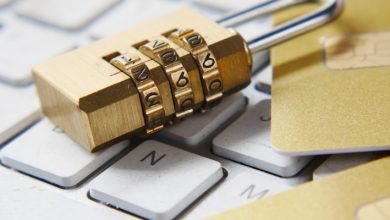How to Choose the Right Wallet for Your Cryptocurrency

- Understanding the importance of choosing the right wallet
- Factors to consider when selecting a cryptocurrency wallet
- Types of cryptocurrency wallets available in the market
- Security features to look for in a cryptocurrency wallet
- Pros and cons of hardware wallets vs software wallets
- Tips for safely storing and managing your cryptocurrency wallet
Understanding the importance of choosing the right wallet
Choosing the right wallet for your cryptocurrency is crucial in ensuring the security and accessibility of your digital assets. A wallet functions as a digital storage space for your cryptocurrencies, allowing you to send, receive, and store them securely. There are various types of wallets available, each with its own set of features and security measures. It is important to understand the importance of selecting the right wallet that meets your specific needs and preferences.
When choosing a wallet, consider factors such as security, ease of use, and compatibility with different cryptocurrencies. Security is paramount when it comes to protecting your digital assets from potential threats such as hacking and fraud. Look for wallets that offer robust security features, such as two-factor authentication and encryption, to safeguard your cryptocurrencies.
Ease of use is another important factor to consider when selecting a wallet. A user-friendly interface and intuitive design can make it easier for you to manage your cryptocurrencies effectively. Additionally, compatibility with a wide range of cryptocurrencies can provide you with the flexibility to diversify your digital asset portfolio.
Ultimately, the right wallet for you will depend on your individual needs and preferences. Whether you prefer a hardware wallet for added security or a mobile wallet for convenience, take the time to research and compare different options before making a decision. By choosing the right wallet for your cryptocurrency, you can ensure that your digital assets are safe and easily accessible whenever you need them.
Factors to consider when selecting a cryptocurrency wallet
When choosing a cryptocurrency wallet, there are several factors to consider to ensure you select the right one for your needs. One important factor to consider is the type of wallet you prefer, whether it’s a hardware wallet, software wallet, or a mobile wallet. Each type has its own set of advantages and disadvantages, so it’s essential to choose one that aligns with your preferences. Another factor to consider is security. Look for a wallet that offers robust security features such as two-factor authentication and encryption to keep your funds safe from hackers.
Additionally, consider the user interface and ease of use of the wallet. A user-friendly interface can make managing your cryptocurrency easier and more efficient. You should also consider the supported cryptocurrencies of the wallet. Make sure the wallet supports the cryptocurrencies you plan to store or trade to avoid any compatibility issues. Lastly, consider the reputation and reviews of the wallet provider. Look for wallets that have positive reviews and a good reputation in the cryptocurrency community to ensure you are choosing a reliable option. By considering these factors, you can select a cryptocurrency wallet that meets your needs and helps you manage your digital assets effectively.
Types of cryptocurrency wallets available in the market
There are several types of cryptocurrency wallets available in the market to choose from based on your needs and preferences. These wallets can be broadly categorized into hardware wallets, software wallets, and paper wallets. Each type offers varying levels of security and convenience for storing your digital assets.
Hardware wallets are physical devices that store your private keys offline, making them less vulnerable to hacking. They are considered one of the most secure options for storing cryptocurrency. Software wallets, on the other hand, are digital applications that can be accessed on your computer or mobile device. They offer convenience but may be more susceptible to cyber attacks.
Another option is a paper wallet, which involves printing out your private keys and public addresses on a piece of paper. While paper wallets are immune to hacking, they can be easily lost or damaged. It’s essential to weigh the pros and cons of each type of wallet before making a decision.
Security features to look for in a cryptocurrency wallet
When choosing a cryptocurrency wallet, it is crucial to prioritize security features to protect your digital assets. Look for wallets that offer multi-factor authentication, such as biometric verification or two-factor authentication, to add an extra layer of security. Additionally, opt for wallets that utilize encryption to secure your private keys and transaction data. It is also important to choose a wallet that allows you to back up your wallet and easily recover your funds in case of loss or theft.
Another essential security feature to look for in a cryptocurrency wallet is the option for cold storage. Cold storage keeps your private keys offline, away from potential hackers or online threats. This significantly reduces the risk of unauthorized access to your funds. Furthermore, consider wallets that offer hierarchical deterministic (HD) wallets, which generate a new public address for each transaction. This feature enhances privacy and security by making it more challenging for malicious actors to track your transactions.
Moreover, it is advisable to select a wallet that has a reputable track record and is regularly updated to address any security vulnerabilities. Research the wallet provider’s history of security incidents and how they have responded to them in the past. Additionally, read reviews and seek recommendations from trusted sources to ensure you are choosing a reliable and secure cryptocurrency wallet.
In conclusion, prioritize security features such as multi-factor authentication, encryption, cold storage, HD wallets, and a strong track record when selecting a cryptocurrency wallet. By choosing a wallet that prioritizes security, you can safeguard your digital assets and have peace of mind knowing that your funds are protected from potential threats.
Pros and cons of hardware wallets vs software wallets
When it comes to choosing a wallet for your cryptocurrency, you may be torn between hardware wallets and software wallets. Each option has its own set of pros and cons that you should consider before making a decision.
- Hardware wallets are physical devices that store your cryptocurrency offline, making them less vulnerable to hacking and cyber attacks.
- Software wallets, on the other hand, are digital applications that are convenient and easy to use, allowing you to access your cryptocurrency anytime, anywhere.
- One of the main advantages of hardware wallets is that they offer enhanced security by keeping your private keys offline, away from potential online threats.
- Software wallets, while convenient, may be more susceptible to hacking and malware attacks since they are connected to the internet.
- Another benefit of hardware wallets is that they are immune to computer viruses and malware that could compromise the security of your cryptocurrency.
- However, software wallets are typically free to use and can be easily downloaded onto your computer or smartphone, making them accessible to a wider range of users.
Ultimately, the choice between hardware and software wallets will depend on your individual needs and preferences. If security is your top priority, a hardware wallet may be the best option for you. On the other hand, if convenience and accessibility are more important to you, a software wallet may be the way to go. Consider your own priorities and do some research to determine which type of wallet is the best fit for your cryptocurrency storage needs.
Tips for safely storing and managing your cryptocurrency wallet
When it comes to storing and managing your cryptocurrency wallet, there are some important tips to keep in mind to ensure the security of your funds. One of the most crucial aspects is to always use a secure and reputable wallet provider. Make sure to do thorough research and read reviews before choosing a wallet to store your cryptocurrency.
Additionally, it is essential to use strong passwords and enable two-factor authentication for an extra layer of security. Avoid using public Wi-Fi networks or unsecured websites when accessing your wallet to prevent potential hacking attempts. Regularly update your wallet software to protect against any vulnerabilities that may be exploited by hackers.
Another important tip is to backup your wallet regularly and store the backup in a secure location. Consider using a hardware wallet or cold storage for added security, especially if you are holding a large amount of cryptocurrency. Keep your private keys safe and never share them with anyone to prevent unauthorized access to your funds.



